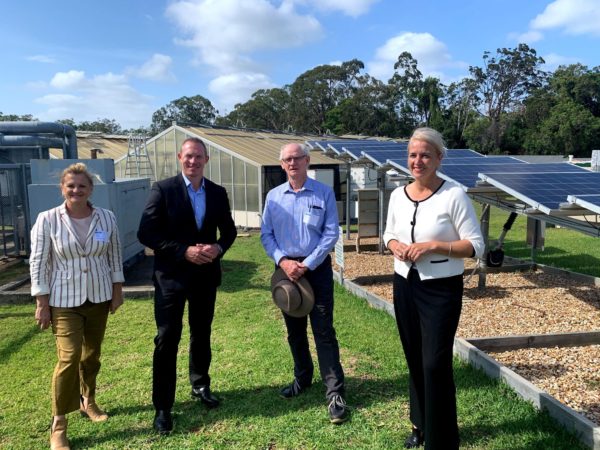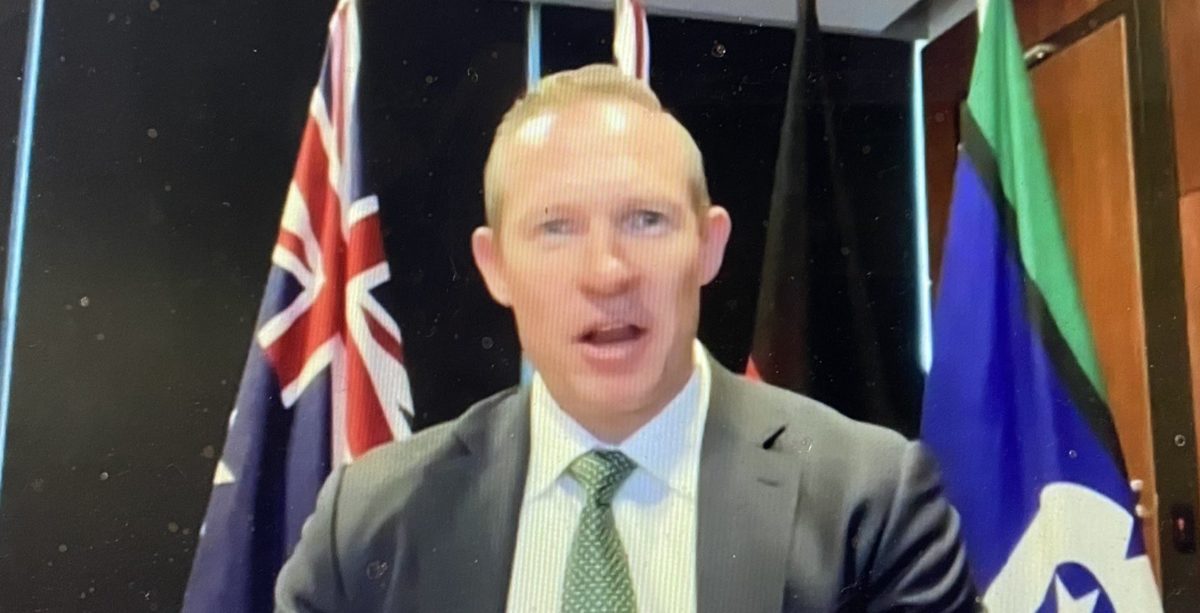Queensland’s Minister for Energy Mick de Brenni has called on renewables industries to “leverage” the surge in interest and goodwill Queenslanders are currently displaying towards clean energy. The minister himself is also planning to do just that: revealing the key priorities of his recently announced 10 year energy plan for the state.
Speaking at the virtual Queensland Smart Energy Summit hosted by the Smart Energy Council, de Brenni also revealed some of the key findings of a recent survey commissioned by his government. With almost 4,500 respondents, de Brenni described it as “the biggest survey of its kind”. The key takeaways include that among respondents surveyed, the number with home batteries had doubled. “It’s terrific to see the uptake of household battery systems reducing grid reliance and of course slashing bills,” he said. The minister did not, however, clarify the time frame of this doubling.
The second key takeaway from the survey, the minister said, was that the cost of electricity is of significantly less concern to Queenslanders today than it was five years ago. “In fact, the figures show 45% of us are less worried about our bills then we were in 2015. And we’ve got every right to feel that way because the average quarterly bill has been going down year on year for the last three years,” de Brenni said.

Image: Mick de Brenni / Facebook
Both these shifts happened against the backdrop of a still-increasing thirst for solar PV in the state, despite the fact Queensland already has the world’s highest rate of households fitted with solar per capita, the minister said. The survey’s full results are expected to be delivered later this week.
Its key findings led the minister to urge those at the virtual energy summit, no doubt primarily members of the clean energy sector, to make the most of momentum. “We are seeing huge potential for the energy sector to capitalise in growing interest in cleaner energy amongst consumers,” de Brenni said. “We should act quickly to leverage and respond to this feedback.”
“Building on this positive sentiment right now is the key to future of success,” he added.
Queensland’s 10 year energy plan
Just a few weeks ago, Queensland Premier Annastacia Palaszczuk announced she had commissioned de Brenni, her energy minister, to deliver a 10 year energy plan for the state. For the minister, the primary task of the plan is to ensure Queensland finally begins using its assets to their full potential.
“I think the key to the energy plan is to make sure we don’t repeat, that our nation does not repeat, the mistakes we made in the previous century when we decided we would be an exporter of things and allow all the other nations to do the value adding to then purchase it back,” de Brenni said.
In other words, he wants to see the “re-industrialisation of our nation”. “I think Australians are yearning for it,” he added, “the opportunity is right here.”
For example, the minister wants to see Queensland not just mining the metals and minerals used in batteries, but producing the batteries themselves. De Brenni also expressed his dismay at the current lead times for purchasing electrolysers to make green hydrogen, which are around 12 months. We can’t have such delays, the minister expressed, if we want to become a global hydrogen leader.
De Brenni also said he wants to see more manufacturing of solar panels come onshore, as well as wind industry manufacturing. “We’ve got to crack that nut and bring that manufacturing here,” he added.
Alongside that objective, de Brenni said the plan would naturally focus on addressing the biggest challenge of renewable integration: reliability, while also ensuring constant affordability for citizens.
Great to hear from @MickdeBrenni that electric vehicles will play a crucial role in the energy plan. The Minister spoke about the opportunity, with the right policies, to power vehicles with cheap renewables – helping to soak up abundant solar. #smartenergysummit @SmartEnergyCncl pic.twitter.com/ZKwvC2rvyZ
— Solar Citizens (@solarcitizens) July 19, 2021
De Brenni, a frequent face at renewable energy events and one of Australia’s most vocal proponents of green hydrogen, said his plan would focus on the integration of green hydrogen into the heavy transport sector, as well as electric vehicle policy. He lamented that Australians are currently filling their cars with fossil fuels profiting exporters in the middle east when they could instead be fuelling them with green electricity from Queensland itself.
“Critically important to the success of the energy plan is to make sure that it outlines a credible pathway to meeting our renewable energy target by 2030 but then also sets out how we will continue to build on that industrial agenda through to 2050. We’ve set a net-zero emissions target for 2050 and we intend to get there through the initiatives outlined in our energy plan.”
The minister said the next few months involve extensive consultations with industry to develop the plan. De Brenni also urged industry to discuss with the department how to best use the competitive advantage of having some of the Asia pacific regions cheapest electricity to drive value adding businesses in the state.
John Grimes, CEO of the Smart Energy Council, congratulated the minister on the plan. “We’ve got a Queensland government that understands the massive economic opportunity,” Grimes said.
Queensland government joins hydrogen Zero Carbon Certification Scheme
The Queensland government also announced today that it had joined the Smart Energy Council’s Zero Carbon Certification Scheme, aimed at guaranteeing the origin of green hydrogen produced in Australia.
“The Queensland Government set a new benchmark last month with the establishment of a $2 billion renewable and hydrogen fund to supercharge jobs. It is all about development of Queensland’s resources sector while at the same time delivering on its renewables commitments. It’s fantastic to have them on board,” Grimes said of the announcement.
#BREAKING @MickdeBrenni announces Qld Govt becoming a Founding Partner in @HydrogenAus @SmartEnergyCncl Zero Carbon Certification Scheme
That's leadership! 👏👏👏@MickdeBrenni @LanceMcCallumMP
@AnnastaciaMP#smartenergysummit #GOLD pic.twitter.com/d7zFnsIvQL— Scott Hamilton (@SDHamiltonVIC) July 19, 2021
“As a Founding Partner of the Smart Energy Council’s Zero Carbon Certification Scheme, buyers of Queensland’s hydrogen can choose a product made by electrolysers powered only from renewable energy,” Minister de Brenni said. “We are sending a very clear message Queensland is serious about decarbonising and that our hydrogen can be produced to the highest environmental standards,” he added.
The Queensland government becomes the 14th founding partner of Zero Carbon Hydrogen Certification Scheme, which now also includes Queensland green blockchain company HydroREC and ‘Internet of Things’ company Gasbot.
The other initial Founding Partners in the Zero Carbon Certification Scheme are:
• The ACT Government
• The Victorian Government
• COP26 High Level Champions for Climate Action
• Yara
• HydroREC
• GasBot
This content is protected by copyright and may not be reused. If you want to cooperate with us and would like to reuse some of our content, please contact: editors@pv-magazine.com.









6 comments
By submitting this form you agree to pv magazine using your data for the purposes of publishing your comment.
Your personal data will only be disclosed or otherwise transmitted to third parties for the purposes of spam filtering or if this is necessary for technical maintenance of the website. Any other transfer to third parties will not take place unless this is justified on the basis of applicable data protection regulations or if pv magazine is legally obliged to do so.
You may revoke this consent at any time with effect for the future, in which case your personal data will be deleted immediately. Otherwise, your data will be deleted if pv magazine has processed your request or the purpose of data storage is fulfilled.
Further information on data privacy can be found in our Data Protection Policy.